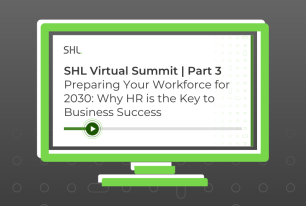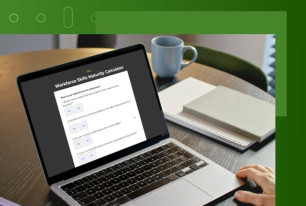Rethinking Essential Leadership Behaviors in Human Resources
Human resources evolve with time, so should its leadership position and behaviors. Learn the leadership behaviors needed for HR leaders in the post-pandemic time.
Share
For the most part, human resources have upheld and reinforced organizational processes, and over time it has grown to become a strategic change advocate. However, the pandemic has effectively changed how HR leaders view the importance of assessing for leadership behaviors, within their own function, that are needed to fast track how they can implement new ideas into a volatile business environment while ensuring the safety and well-being of their employees. I was fortunate enough to have been a part of the HR Director’s conference that took place on the 17th and 18th of March 2021. We addressed some important issues pertaining to the role of human resources in an ever-changing environment.
Most organizations needed to review their operations to adjust their workforce and to prepare their employees for working remotely. This was never going to be an easy task to achieve, as not only were practical issues addressed but along with that, a change in leadership behaviors was – and is – needed to succeed. The focus of the conference was directed at HR leaders, but most leaders share the responsibility for the talent within an organization, and therefore considering effective leadership behaviors can apply to all leaders and not only those within the HR space.
Building up effective leadership behaviors
As a change in HR leadership behaviors is imperative for success, questions as to how we can develop effective leadership behaviors in organizations arise, such as:
- How do we equip our HR managers to manage their staff remotely?
- How do we build a trusting environment for our remote workforce?
To be able to optimize and smooth the process and equip HR leaders to meet these requirements, HR leaders must first take an inward look to identify what are the essentials of leadership within this dynamic environment. This is different for most companies. However, there are some universal competencies that map leadership behaviors and are used to assess and determine if a company’s leadership is equipped to manage the change and resolve the identified issues to move their companies forward.
It requires a people-centric and holistic approach to be truly successful post-pandemic, in a time where a hybrid workspace is a reality. HR Leaders will now need to effectively accommodate the varying preferences of their workforce to drive a positive employee experience as well as their performance. But for HR leaders to understand this, they need to access and utilize all the information that is made available to them.
It requires a people-centric and holistic approach to be truly successful post-pandemic, in a time where a hybrid workspace is a reality.
What leadership behaviors do you need to develop?
I believe that the following essential leadership behaviors are needed for HR leaders to create a trusting environment for remote work and the post-pandemic workplace. These leadership behaviors speak to the contextual focus of leadership, that is, focusing specifically on the post-pandemic context.
#1—Empathetic Leadership
Now, more than ever, it is critical for leaders to reinforce their empathetic skills. The changing environment presents new challenges for the workforce, which leaders need to be able to manage. Think about managing work-life balance, which can be extremely difficult for some as the home has now been converted into a workplace, blurring the lines between their families and work. Some of the unintended consequences of employees working from home include working longer hours to keep up with the workload and other matters of urgency. If a leader does not see and understand how these new challenges will affect their employees, they are more than likely to have a fatigued workforce that is too exhausted to perform.
#2—Ethical Leadership
One of the most important leadership behaviors to develop is to perform ethically. Leaders that own this behavior are more likely to create a trusting environment for both managers and their team. It is not enough to develop a robust ethical process; leaders must be able to implement this and monitor it effectively.
#3—Feedback Centric
We need our leaders to be feedback-centric, as this will drive an open communication channel that will motivate and improve employee morale. The ability to provide feedback and receive it as a leader will benefit your organization in the complex environment that we will be operating in the post-pandemic time. Because we live in a data-driven world, which can clutter and demotivate a workforce, the ability to reassure in an honest and goal-driven manner will be valuable to your organization.
#4—Network Leadership
Leaders need to be focused on building, enhancing, and managing relationships both within and outside of an organization. Collaboration on ideas and projects and support for colleagues and clients has become even more critical in this post-pandemic time.
The pandemic has changed how HR should see their roles. Carrying effective leadership behaviors will add to the advantage of being a successful leader in the current environment. It is very important to establish a functioning leadership framework using tried and tested methods to ensure that you are putting the right people in place, who will be able to handle a post-pandemic workplace.
Learn more about our leadership solutions, which help you develop an effective leadership strategy with a scientifically based approach.









